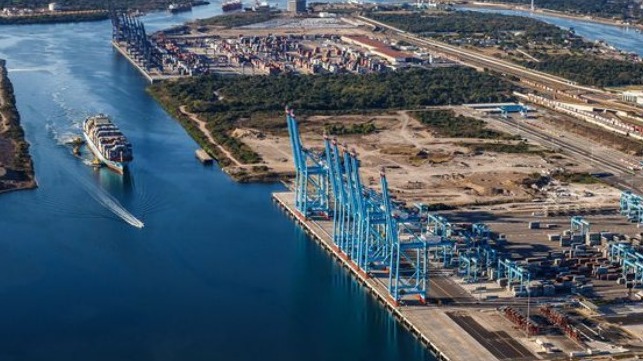Mexico Plans to Stop Port and Customs Corruption with Military Control

In its latest efforts to break the stronghold on the illegal cartels, Mexico’s president is preparing to place the military in control of the country’s port operations. The step comes as many people believe that the cartels have integrated themselves into the maritime industry, controlling the movement of goods in and out of the ports and the customs services.
Legislation is currently working its way through Mexico’s parliament and is expected to receive approval from the lawmakers, according to reports in Deutsche Welle that would place the ports in the hands of the military. The German media outlet quotes Raul Benitez Manaut, a political scientist and security expert at the Centro de Investigaciones sobre America de Norte (CISAN) think tank as saying that it is well known that he ports and customs are rife with corruption. The cartels have expanded their operations from drug trafficking, murders, and kidnapping, into legitimate businesses ranging from minerals to real estate.
Under Mexico’s President Andres Manuel Lopez Obrador plan responsibility for the port operations would be transferred from the civilian Transportation Ministry to the military. Army personnel who he has often said are less corrupt than the bureaucrats would oversee all aspects of the port operations. The president cites the army’s success in fighting corruption and the cartels.
News of these efforts is in keeping with the president’s promises to root out corruption through all aspects of Mexico. In July, Lopez Obrador spoke publicly about the problems of corruption in the ports. After he detailed his plans, Mexico’s transportation secretary resigned citing a dispute with the president over the management of the ports. Weeks later, in August the government threatened to revoke the 100-year lease for the port of Veracruz operated by a private port company. The president also frequently criticized public-private concession agreements signed by his predecessors in government, citing them as creating another opportunity for corruption.
Late in 2013, the previous government in Mexico also took a similar step with the armed forces taking charge of security in the Pacific port of Lazaro Cardenas, Mexico’s major cargo hub. Units of the army, navy, and federal police moved in to oversee access to and around Lazaro Cardenas. At the time the government said that effort was part of a series of measures aimed at restoring stability to Michoacan state that had been overrun by violence and corruption tied to the drug cartels. It would be 14 months before ore shipments resumed through the port.
Experts say it is critical for the government to again gain control of the operations at the major ports including once again Lazaro Cardenas and Veracruz. In July, Lopez Obrador promised to crack down on corruption and illegal activities in the port by cleaning up and remodeling the port administration and customs operations in the ports.

that matters most
Get the latest maritime news delivered to your inbox daily.
Government opposition leaders speaking to the media in Mexico, however have said they fear the military does not have the expertise and experience to properly run the ports. They have expressed concerns that they could slow operations at the port and undermine operations and the economy. They also questioned with the scope of the port operations and volume of containers and goods flowing through the terminals if the military would be able to intercept enough of the illegal flow to truly stem the activities in the ports.
The military, however, has taken an increasing role in a broader range of law enforcement and anti-corruption efforts in Mexico. The government announced directives in the spring that gave the military additional roles and responsibilities in law enforcement. According to the experts it remains to be seen if the military can be any more successful in stopping the flow of drugs, guns, and cash, as well as increasing the payment of customs duties and reducing corruption in the ports.
